More actions
mNo edit summary |
|||
| (101 intermediate revisions by 6 users not shown) | |||
| Line 1: | Line 1: | ||
{{Info | {{Info Lineage | ||
| | |name = Ailor | ||
| | |test = Ailor (in Common) | ||
|test2 = [[File:Qolorth.png|80px]] | |||
|test3 = '''Motto:''' "March, march to the glory of progress" | |||
|image = GKdc6 UXIAAOUe4.jpg | |||
|state = Many | |||
|ruler = Varied | |||
|languages = Primarily Common | |||
| | |religion = [[Unionism]], [[Fornoss]], [[Draconism]] | ||
| | |first_recorded = Unclear | ||
|demonym = Ailor | |||
| | |||
| | |||
| | |||
| | |||
| | |||
[[ | |||
[[ | |||
[[ | |||
|}} | |}} | ||
Ailor is a term that describes a vast range of people with no clear single heritage origin, but who all developed around the same time. Aloria's analog for Humans, the Ailor are Aloria's most numerous people by sheer virtue of populating the majority of the world's landmasses, and their comparatively shorter lives to those of other heritage, causing their population numbers to explode in short periods. To many other societies, the Ailor were barely on the radar for thousands of years. Despite their huge numbers, for most of history, they were the uncounted footnote, often an entity to be acted upon, rather than setting the stage for the global empires of old. The world-altering event that was the Cataclysm changed the global foodchain, propelling the Ailor to the top with the newly established Regalian Empire, which would grow to become the world's greatest superpower. The majority of the Roleplay occurs in the capital of the Ailor people, Regalia. | |||
== | ==Design== | ||
[[File: | [[File:Earlytribe.jpg|268px|thumb|right|Because of their historical newcomer status to geopolitics, some other peoples of Aloria still look down on Ailor as crude tribals.]] | ||
Ailor | [[File:Kniththood.jpg|268px|thumb|right|Knighthood is a concept developed by Ailor, mostly to legitimize and uphold their power structures.]] | ||
[[File:Historyoberser.jpg|268px|thumb|right|Most of the world's history is recorded through the eyes of the Ailor, who show a more erudite work-ethic to chronicling than others.]] | |||
[[File:Religionpiety.jpg|268px|thumb|right|The Ailor are exceptionally pious, capable of great acts of self-sacrifice or evil in the name of faith.]] | |||
[[File:Strongmages.jpg|268px|thumb|right|While most of Ailor society is anti-Magic, some of the world's most powerful Mages can be found among them.]] | |||
[[File:Autocracy.jpg|268px|thumb|right|Autocracy, hierarchy, and feudalism are some of the cornerstone pillars of Ailor society.]] | |||
[[File:Fassshion.jpg|268px|thumb|right|While most other people have consistent fashion styles, the Ailor are at the foreground of fashionable advancements.]] | |||
[[File:Courtplottin.jpg|268px|thumb|right|The amount of plotting and scheming at Ailor courts would sometimes put Elven intrigue to shame, given it moves much faster and much more deadly.]] | |||
Ailor, being the closest analog to a "Human" as seen in other lore universes, are considered the jack-of-all-trades. They do nothing quite as exceptional as the other peoples of Aloria. While they can learn Magic, rarely does an Ailor become as good a Mage as a Lanlath Elf. While Ailor use technology often, rarely do they have the unique technological gift of the Skyborn. While Ailor fleets command the high seas with military power, an Ailor could not compete with a Fin'ullen Elf while fighting submerged in water. They are the average middle ground between all people, capable of all things but having no specific gift for anything but court politics and intrigue, and an uncanny ability to create further divisions among themselves. It should be noted that Ailor can have any visual appearance real-world people can have independent of their parentage or ethnicity. Genetics work differently in Aloria, with inherited traits often being more about demeanor, rather than skin/hair/eye color or ethnic grouping. | |||
==Heritage Traits== | |||
In Character Design, [[Proficiency]] allows for the buying of Packs, which give Combat Abilities. Heritage Traits add free Packs and Mechanics to a Character, fit around cultural themes. Mechanics are flair and roleplay opportunities Characters have outside of Combat, while Packs are Combat Power. Free [[Magic]] Packs can always be defined as any Alignment. Mixed Heritage Characters (characters of two different culture parents) choose one set of Free Packs, and can mix and match Mechanics from both parents up to a maximum of 5 Mechanics. | |||
===Free Packs=== | |||
* Ailor can choose 1 Pack from any Category for free. If any magic is chosen, the player may choose Alignment between God Magic, Exist, Ordial, Void, and Dragon Magic. | |||
* Ailor can choose 1 Pack from [[Mounted Point Buy]] or [[Training Point Buy]] Categories for free. | |||
===Mechanics=== | |||
* Ailor are masters of languages, which is expected given their habit to culturally divides. Because so many of their languages are inter-connected, various words become more obviously related, and they also take more effort to learn other languages. If someone insults an Ailor, even in a language they do not speak, the Ailor would know, as they know most curse words or words by which to speak ill of others in all languages. | |||
* Ailor are the masters of the Regalian Empire, and while it has equality between all peoples and heritages, Ailor are just by virtue of being Ailor considered preferential for most government positions and judicial situations. Where possible to do with the Nobility, with Government, or with Palace decisions, Ailor will be treated preferentially over other peoples, even if their qualifications might be lesser than the other options. | |||
* Ailor make for excellent negotiators. Ailor gain +2 on top of every Persuasion Dice roll result, and their Persuasion Cap is also increased by +2 for every Dice Roll. These effects only apply to non-Afflicted, non-Mystech individuals, as their speech and habits are entirely fine-tuned to the more mundane aspects of global society, they must venture beyond their comfort zone to be able to reach Magic things. | |||
* Ailor whether by divine intervention or by sheer dump cosmic luck, always somehow end up on the right side of history. Ailor Characters when participating in Events, may sometimes stumble into an extreme luck roll that drops an additional loot item for one of the participants. This loot can be physical items, or intangible things like Divinium or an Artifactspark. Chances are higher for non-Magic using Ailor than Magic using Ailor. | |||
* Ailor when using [[Syncretism]] can worship up to 3 Gods of their sub-dominant Religion, instead of just 1 or 2. Additionally, when Syncretizing, they gain the Mechanic of the sub-dominant Religion (except for Evolism, where only one of the Mechanics can be chosen). If your Character does not Syncretize, they gain +1 Attack Stat (Breaking Cap up to 11) against Characters that have Syncretized their mono-faith. | |||
==Religions== | |||
* '''[[Unionism]]:''' Unionism is the most common Religion followed by the Ailor, and it is also the most recent one, only being 300 years or so old. Unionism is a Religion that proposes that global paradise will arrive when the Regalian Empire dominates the whole world, and because most Ailor live in the borders of the Regalian Empire, the two connect well. | |||
* '''[[Draconism]]:''' Draconism is one of the smallest minority Religions among the Ailor, but still one that is going strong. Draconism is exceptionally hard to root out among the Ailor, because the Dragons always seem to have treated them more preferentially than other peoples of Aloria, guiding and helping the development of many of their cultures over the centuries. | |||
* '''[[Estelley]]:''' Following Estelley as a Religion is a bit strange for an Ailor because it is mostly an Elf ethno-Religion, and because the Elves spent millennia terrorizing Ailor countries with repeat raids for wealth and power. Still, Estelley brings a strong message about inner perfection that some Ailor who live among a lot of Elves may find appealing. | |||
* '''[[Fornoss]]:''' Fornoss is the second (and once largest) Religion of the Ailor. The Fornoss Religion continues to be strong especially in the north, as the original Fornoss believers were the first Ailor to truly venture far beyond their native homelands and colonized many corners of the world. It continues to have a strong presence even in the mostly Unionist Regalian Empire. | |||
* '''[[Evolism]]:''' Evolism is an unusually popular minority Religion among the Ailor. As the Regalian Empire grows and expands, the individual becomes more of a faceless nameless gray entity in a crowd, indistinguishable from the other averages. The Dark Gods answer, allowing an Ailor to become exceptional, powerful, famous and feared, at the expense of their obedience. | |||
* '''[[Khama]]:''' While Khama was largely an ethno-Religion for most of its existence, it has recently become more open to outsiders, and so some non-Asha are converting to it. The numbers are still minuscule, but with a more articulated central message, Khama is capable of competing for converts with the other minority Religions. | |||
* '''[[Minor Faiths]]:''' Due to the cultural and historical variance among the Ailor, Pagan Cultism is alive and well especially in the more isolated corners of the Empire. Ailor make up the bulk of most of the smaller Pagan Faiths and Cults that exist around the world, just because of difficulty other major world Religions have at inspiring the hinterlands to follow their dogma. | |||
==Naming== | |||
Ailor naming customs are extremely varied, and even within societies or cultures that have common habits, Ailor tend to name children all manner of names sometimes even from other cultures. If a player chooses to make their Character of a particular culture (cultures are outlined below), then a quick google search can quickly explain naming conventions, and give name examples. Some unique naming conventions within the lore do not exist in real-life, so it may always be relevant to source the culture pages below to see if any special naming conventions are mentioned. | |||
== | |||
Ailor | |||
== | ==Cultures== | ||
Ailor more than any other people sub-divide their cultues perpetually, and sometimes for no real discernable reason other than to engage in an othering of groups of people from the home-group. While most other peoples of Aloria are fairly homogenous when it comes to culture, the Ailor have dozens of cultures, and among them even dozens of dialects and customs. Ailor love create an "us and them" mentality with ever smaller groupings with niche customs and habits. To give access to a wide variety of cultural expressions, we use real-world culture analogs that are easy to understand and express for Players. Below is a listing of all the Cultures that are currently playable. | |||
* The '''[[Ailor_Cultures#Velheim|Velheim Culture]]''' is a varied Scandinavian-like Culture with elements of Viking militarism and Norse Pagan mysticism. | |||
* The '''[[Not Ready Yet|Wirtem Culture (to be written)]]''' is a varied Germanic-like culture with elements of Prussian militarism and Bavarian agrarianism. | |||
* The '''[[Not Ready Yet|Anglian Culture (to be written)]]''' is a varied Netherlandish culture with elements of Dutch agrarianism and old Germanic mysticism. | |||
* The '''[[Not Ready Yet|Breizh Culture (to be written)]]''' is a varied Welsh/Breton/Cornish-like culture with elements of chivalric knighthood and Arthurian legends. | |||
* The '''[[Not Ready Yet|Cearden Culture (to be written)]]''' is a varied English/Anglosaxon/Gaelic-like culture with elements of English manorialism and the Scottish highlands. | |||
* The '''[[Ailor_Cultures#Ithanian|Ithanian Culture]]''' is a varied French-like culture with elements of Versailles court-intrigue and belle-epoque high fashion. | |||
* The '''[[Not Ready Yet|Tierravera Culture (to be written)]]''' is a varied Spanish/Latin America-like culture with elements of hacienda estates and guerrilla-style independence. | |||
* The '''[[Not Ready Yet|Slovenin Culture (to be written)]]''' is a varied Slavic/Balkan-like culture with elements of orthodox piety to faith and east-European customs. | |||
* The '''[[Not Ready Yet|Aetosian Culture (to be written)]]''' is a varied Byzantine/Armenian/Georgian-like culture with elements of intellectualism and the enlightenment. | |||
* The '''[[Not Ready Yet|Cantaluna Culture (to be written)]]''' is a varied Italian-like culture with elements of musical/orchestral expression and educational prowess. | |||
* The '''[[Ailor_Cultures#Pre-Empire|Pre-Empire Culture (to be written)]]''' is a collection of mostly extinct fantasy cultures that add some unique flair to Ailor. | |||
* The '''[[Not Ready Yet|Regal Culture (to be written)]]''' has no real-world analog, it is an artificial "patriotic" culture that tries to blend other cultures together. | |||
While we generally recommend sticking to these Cultures as written into Lore, you are able to carry forward your own culture or a real-world culture not mentioned on this page into Roleplay without much issue. Keep in mind however that some specific cultures do belong to other heritages of people, so if you would like to express a particular real-world culture in Roleplay that is not on this list, please make a Lore Staff Ticket on the Community Discord to discuss. | |||
==== | ==History== | ||
The Empire | ===The Homeland Era=== | ||
The Homeland Era is a period that refers to when the Ailor largely lived on Ceardia and other immediately adjacent land masses. This period was likely either shortly after the fall of the Meraic Empire or some millennia before the rise of the Allorn Empire. Ailor have likely been around for some time longer than most people of Aloria in the present era, however their initial progress was extremely slow due to their short (comparative) life spans, and their extremely violent culture. The Homeland Era is sometimes also referred to as the Warlord Era, as this was a period in which most of Ailor society was perpetually stuck in never-ending border conflicts with regional warlords and petty despots. There are an uncountable amount of cultures that rose and perished in this period, until the sudden arrival of the Proto-Velheim who would later form the core of the Fornoss worshiping people. At around the same time, the ancestors of the Skyborn diversified from their common Ailor ancestor, and became the first founders on Ard-al-Nur, thus no longer being Ailor. | |||
===The Pearl Wars=== | |||
After the Proto-Velheim started mass-colonizing the world, a long period that coincides with Elven and Asha history referred to as the Pearl Wars or the Elven Terror. This was a period spanning some millennia after the Dewamenet-Allorn War, and the subsequent defeat of the Asha. As the Pearl Wars accelerated against the Asha, fleeing Asha populations moved into Ailor territories, which in turn put the Ailor in contact with the Elves. There is a shared tragedy between the Ailor and the Asha, in that many of the same areas where Asha were repeatedly attacked with vile Oblation Magics, the Ailor who lived close by and sometimes even intermingled also became a target. While Oblation Magic required specific conditions to be met to work on the souls of the Asha, it was easier to apply to the Ailor, who had such varied Religions that they sometimes just did not have afterlives, or were some version of early agnostic, thus not having any faith at all. It should be expressed that the Asha by far suffered greater under this historical event than the Ailor, as the campaign by the Elves was designed to exterminate their people and culture, but Ailor often were caught up in the crossfire, and faced raids just as well. For every three raids on Asha population centers, Ailor also faced a raid on theirs, with Elven fleets ranging as far as Ceardia, Ard-al-Nur, and the landmass that would later become the Regalian Archipelago. During this period, large migratory movements of people also occurred, which is why the Ailor are so genetically diverse in the modern era. While originally skintone and hair color and eye color defined where someone came from, over time the mixing of these people made visual traits effectively universal. There remain legends of "the arrival of the black-haired people from the south", millennia ago, a point after which those populations mixed, and henceforth any Ailor could have black hair. The Pearl Wars did not invoke a historical trauma for the Ailor like it did for the Asha, notably because their average life span in this period was four times as short as an average Asha who could survive the Pearl Wars, so the events were quickly forgotten, though a communal distrust of Elves remained. When the Pearl Wars ended, Ailor population counts recovered fairly quickly, and exploded after the Cataclysm. | |||
===The Regalian Era=== | |||
The Cataclysm defines the 0 year dating event during which much of the world's geography was changed due a series of natural calamities. These earthquakes, volcanoes, and tsunamis were the consequence of a massive Magical event at the end of a failed Void Invasion elsewhere in the world, and it utterly wrecked most of the western world's surface (sparing the Sihai lands). The Allorn Empire was destroyed, and with their most prominent obstacle to glory being eliminated, the Ailor were free to expand and form larger contiguous states. In the year 5 AC the Regalian Empire was founded after the Five Family Rebellion against a local Elven state, during which Solvaan Elves. Eronidas, Ailor, and Narim came together to defeat the local tyrants and found the Regalian Empire under the leadership of the Ailor. Regalia continued to grow for the coming 3 centuries into the world's largest but often at times unstable Empire and the central focus point of world politics. This era is largely defined for each state by whether or not they are part of the Empire, subject to it, or fight against it. | |||
==Expanded Lore== | |||
Expanded Lore exists to apply more content and deep-lore exploration. This section is optional reading that is not needed for a good experience, though if you play a Scholar of a kind, reading this is encouraged. | |||
===Regalia the City=== | |||
Regalia is the capital of the Regalian Empire. Why the city and the Empire are named the way they are is unknown, though it was likely a happenstance, as most of the Regalian Empire at the time of its founding was either trival or in early stages of developing a feudal agrarian society. Regalia, or the capital more specifically, was the place where everyone traveled to "the Regal place" as it were. The capital is what defined much of the early rise of the Empire, and is the central focal point in a way that no other capital of any other people could be. As a result, it is speculated that the locals just eventually called Regalia the Regal City, and that the Empire was defined by what this capital was called. Regalia is a metropolitan the likes of which only the most cosmopolitan melting pot cities in the real world could compare. Even though it only has 4 million inhabitants (which is small compared to real-world metropolises), it is the most densely inhabited city in Aloria, with every culture, every belief, every cult, every heritage and every ethnicity represented. For all the major religions there are vast temples, for all the foreign kingdoms there are embassies, and each people effectively has a district or neighborhood to call their own. Every taste, every sensation, every thought and everything that is present in the world is sampled in this city, which is why inevitably all roads lead back to Regalia, and every person longs to visit this city one day. The city however also has a dark side. While much of it is covered in wealth and splendor, crime is high in the poor areas and state saboteurs and terrorists actively blend into the vast population that the state apparatus is often unable to control. For all the gilded roofs and poetic prose about the beauty of the Palace, it only masks the misery of the homeless in the alley ways, falling victim to Vampires and other dark forces alike. Regalia is a city of extremes, and thus the focus point of the Roleplay universe. | |||
=== | ===Thoughts on Magic=== | ||
The | The Ailor are a people with a complicated relationship with Magic. Some cultures absolutely adore and encourage Magical exploration, while many other Ailor cultures absolutely despise it, and would eagerly kill Mages if given the chance. As a result, Ailor leaders and rulers constantly walk a fine balancing act between purism and mage emancipation that often tends to swing back and forth depending on the personal preferences of the person in charge. In Regalian Roleplay, this expresses itself through the "pendulum of rights". Every year or so, a new person comes to power in Regalia who has a different opinion on Magic, and radically alters the laws to fit their preferences. This can sometimes result in extreme emancipation and Magic publicly used in the street, only to be repressed a year later as a new ruler comes to power. It often results in situations where Mages play crucial roles in solving the calamities and chaos that strike Regalia, but end up being punished after the fact as scapegoats, having to be content with the invisibility of their achievement as propaganda wipes their contributions away. The constant struggle between Tech versus Magic is an ongoing topic in Ailor society, and Regalia in particular, that Players are constantly on switching sides of. | ||
=== | ===Aristocracy & Hierarchy=== | ||
The | One very important aspect of Ailor society as a whole is aristocracy, autocracy and the concept of hierarchy. For better or worse, the Ailor always gravitate towards leadership structures and seek strong persons to lead them and to organize them. The Ailor are not exceptional at anything individually, but even the most untrained peasant mob under the right leader can turn the Ailor from disorganized rabble into efficient fighting machine. Each Ailor society eventually structures itself around centralized leaders followed by devolved leadership or authority passed down to subordinates. This usually expresses itself through feudalism and serfdom, and so most of the millions of Ailor who live in the world are tenant farmers or workers subject to some lord or count. Even among the nominally more democratic nations that call themselves republics, only the wealthy vote, or votes are only cast between centralizing families that rule from mighty castles and palaces. Hierarchy is exceptionally important in Ailor society, and the concept of a social class climber is seen as uncouth. Class distinction is important, and while the Ailor do not have a caste system, marrying outside of one's means is considered an offensive vanity for the pauper, and a weak gesture for the wealth-born. | ||
=== | ===States & Regionalism=== | ||
An enduring conflict that often plagues Ailor progress, is their habit to further fragment their society into smaller groups to create more exclusionary in-groups and othering those not part of it. This often expresses itself in the conflict between patriotism and regionalism. It is a natural desire of all states and autocratic leaders to seek more centralized power. To break away the legal rights of the smaller regions and to meld everything together into one homogenous loyal state that works towards a common goal. Because Ailor have become very efficient at doing just that, large regional-autonomy movements have risen up to preserve cultural uniqueness, but also to counteract the loss of regional agency. After all, many cultural niches exist in small regional polities, with a history of having fought for their identity's continued survival against for example a common enemy like the Elves. But often, when these enemies would disappear, suddenly the predominant Ailor power would become the new oppressor, or attempt to centralize power even more aggressively than the previous tyrant would. In Regalia, this often expresses itself in subtly disobedient and regionally autonomous politicians. These politicians aren't necessarily disloyal to the Empire, and do not wish to see it do well, but would rather than all taxes and cultural homogeneity is applied anywhere but here. In essence, many of Regalia's politicians are NIMBYs, and the Empire's instability is largely caused by its own politicians engaging in self-sabotaging plots against the crown and the central state to cling to any regional autonomy they can, even if it puts them at severe risk of invasion from outside forces or ouster from their own people. | |||
==Trivia== | ==Trivia== | ||
* | * The name Ailor is a somewhat bold claim made by these people that they should be the inheritors of the world (the world being called Aloria, considering themselves the pre-eminent people of it). Other peoples of Aloria sometimes call the Ailor "Nuvalon", which is Elven for "New People" to put them more in their historical context. | ||
* The one thing Ailor are deeply skilled at, is adaptation and usurpation. Ailor can take any kind of technology, design, or idea from other people, and further it into one of their own, and then continue to iterate onto it to make it even better. Most Ailor inventions like the musket and the three-decked battleship are based on Dwarven inventions, but now fuel the rise of the Regalian Empire. | |||
* Ailor are | * Ailor are confirmed to be a common ancestor of the Skyborn people (at least the Founders and the Reclaimers). It is also speculated that the Ailor may be a distant common ancestor of the Dwarves. This would explain why Dwarven traits essentially disappear in half or quarter Dwarves. | ||
{{ | {{Peoples}} | ||
{{Accreditation | {{Accreditation | ||
|Artists = MonMarty | |Artists = MonMarty | ||
|Writers = MonMarty | |Writers = MonMarty | ||
|Processors = MonMarty | |Processors = MonMarty, FireFan96 | ||
}} | }} | ||
[[category: | [[category:Heritages]] | ||
Revision as of 03:41, 28 September 2024
| Ailor | |
|---|---|
 | |
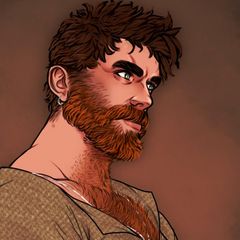 | |
| Nation State | Many |
| Ruler | Varied |
| Languages | Primarily Common |
| Religion | Unionism, Fornoss, Draconism |
| First Recorded | Unclear |
| Demonym(s) | Ailor |
Ailor is a term that describes a vast range of people with no clear single heritage origin, but who all developed around the same time. Aloria's analog for Humans, the Ailor are Aloria's most numerous people by sheer virtue of populating the majority of the world's landmasses, and their comparatively shorter lives to those of other heritage, causing their population numbers to explode in short periods. To many other societies, the Ailor were barely on the radar for thousands of years. Despite their huge numbers, for most of history, they were the uncounted footnote, often an entity to be acted upon, rather than setting the stage for the global empires of old. The world-altering event that was the Cataclysm changed the global foodchain, propelling the Ailor to the top with the newly established Regalian Empire, which would grow to become the world's greatest superpower. The majority of the Roleplay occurs in the capital of the Ailor people, Regalia.
Design
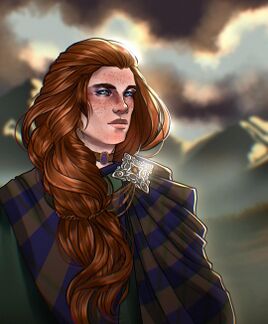
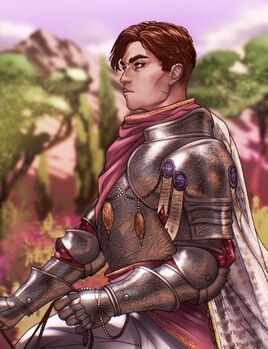
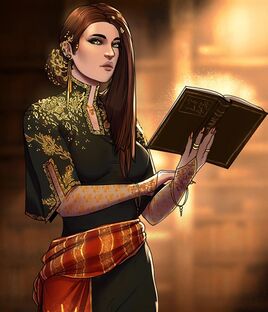
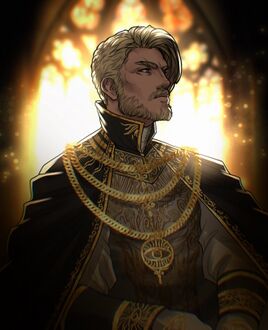
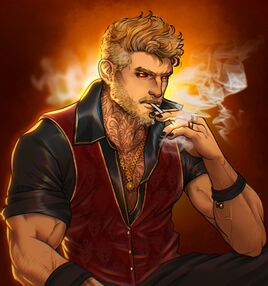
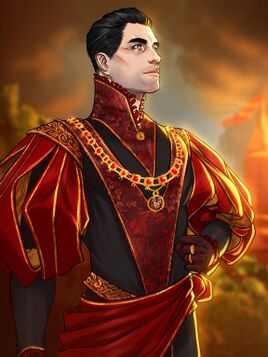
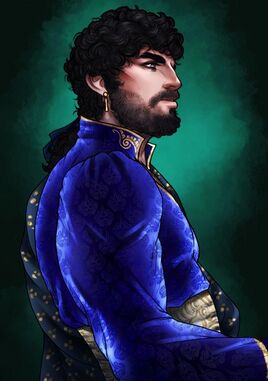
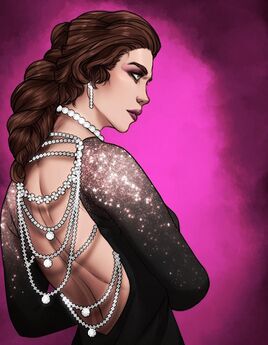
Ailor, being the closest analog to a "Human" as seen in other lore universes, are considered the jack-of-all-trades. They do nothing quite as exceptional as the other peoples of Aloria. While they can learn Magic, rarely does an Ailor become as good a Mage as a Lanlath Elf. While Ailor use technology often, rarely do they have the unique technological gift of the Skyborn. While Ailor fleets command the high seas with military power, an Ailor could not compete with a Fin'ullen Elf while fighting submerged in water. They are the average middle ground between all people, capable of all things but having no specific gift for anything but court politics and intrigue, and an uncanny ability to create further divisions among themselves. It should be noted that Ailor can have any visual appearance real-world people can have independent of their parentage or ethnicity. Genetics work differently in Aloria, with inherited traits often being more about demeanor, rather than skin/hair/eye color or ethnic grouping.
Heritage Traits
In Character Design, Proficiency allows for the buying of Packs, which give Combat Abilities. Heritage Traits add free Packs and Mechanics to a Character, fit around cultural themes. Mechanics are flair and roleplay opportunities Characters have outside of Combat, while Packs are Combat Power. Free Magic Packs can always be defined as any Alignment. Mixed Heritage Characters (characters of two different culture parents) choose one set of Free Packs, and can mix and match Mechanics from both parents up to a maximum of 5 Mechanics.
Free Packs
- Ailor can choose 1 Pack from any Category for free. If any magic is chosen, the player may choose Alignment between God Magic, Exist, Ordial, Void, and Dragon Magic.
- Ailor can choose 1 Pack from Mounted Point Buy or Training Point Buy Categories for free.
Mechanics
- Ailor are masters of languages, which is expected given their habit to culturally divides. Because so many of their languages are inter-connected, various words become more obviously related, and they also take more effort to learn other languages. If someone insults an Ailor, even in a language they do not speak, the Ailor would know, as they know most curse words or words by which to speak ill of others in all languages.
- Ailor are the masters of the Regalian Empire, and while it has equality between all peoples and heritages, Ailor are just by virtue of being Ailor considered preferential for most government positions and judicial situations. Where possible to do with the Nobility, with Government, or with Palace decisions, Ailor will be treated preferentially over other peoples, even if their qualifications might be lesser than the other options.
- Ailor make for excellent negotiators. Ailor gain +2 on top of every Persuasion Dice roll result, and their Persuasion Cap is also increased by +2 for every Dice Roll. These effects only apply to non-Afflicted, non-Mystech individuals, as their speech and habits are entirely fine-tuned to the more mundane aspects of global society, they must venture beyond their comfort zone to be able to reach Magic things.
- Ailor whether by divine intervention or by sheer dump cosmic luck, always somehow end up on the right side of history. Ailor Characters when participating in Events, may sometimes stumble into an extreme luck roll that drops an additional loot item for one of the participants. This loot can be physical items, or intangible things like Divinium or an Artifactspark. Chances are higher for non-Magic using Ailor than Magic using Ailor.
- Ailor when using Syncretism can worship up to 3 Gods of their sub-dominant Religion, instead of just 1 or 2. Additionally, when Syncretizing, they gain the Mechanic of the sub-dominant Religion (except for Evolism, where only one of the Mechanics can be chosen). If your Character does not Syncretize, they gain +1 Attack Stat (Breaking Cap up to 11) against Characters that have Syncretized their mono-faith.
Religions
- Unionism: Unionism is the most common Religion followed by the Ailor, and it is also the most recent one, only being 300 years or so old. Unionism is a Religion that proposes that global paradise will arrive when the Regalian Empire dominates the whole world, and because most Ailor live in the borders of the Regalian Empire, the two connect well.
- Draconism: Draconism is one of the smallest minority Religions among the Ailor, but still one that is going strong. Draconism is exceptionally hard to root out among the Ailor, because the Dragons always seem to have treated them more preferentially than other peoples of Aloria, guiding and helping the development of many of their cultures over the centuries.
- Estelley: Following Estelley as a Religion is a bit strange for an Ailor because it is mostly an Elf ethno-Religion, and because the Elves spent millennia terrorizing Ailor countries with repeat raids for wealth and power. Still, Estelley brings a strong message about inner perfection that some Ailor who live among a lot of Elves may find appealing.
- Fornoss: Fornoss is the second (and once largest) Religion of the Ailor. The Fornoss Religion continues to be strong especially in the north, as the original Fornoss believers were the first Ailor to truly venture far beyond their native homelands and colonized many corners of the world. It continues to have a strong presence even in the mostly Unionist Regalian Empire.
- Evolism: Evolism is an unusually popular minority Religion among the Ailor. As the Regalian Empire grows and expands, the individual becomes more of a faceless nameless gray entity in a crowd, indistinguishable from the other averages. The Dark Gods answer, allowing an Ailor to become exceptional, powerful, famous and feared, at the expense of their obedience.
- Khama: While Khama was largely an ethno-Religion for most of its existence, it has recently become more open to outsiders, and so some non-Asha are converting to it. The numbers are still minuscule, but with a more articulated central message, Khama is capable of competing for converts with the other minority Religions.
- Minor Faiths: Due to the cultural and historical variance among the Ailor, Pagan Cultism is alive and well especially in the more isolated corners of the Empire. Ailor make up the bulk of most of the smaller Pagan Faiths and Cults that exist around the world, just because of difficulty other major world Religions have at inspiring the hinterlands to follow their dogma.
Naming
Ailor naming customs are extremely varied, and even within societies or cultures that have common habits, Ailor tend to name children all manner of names sometimes even from other cultures. If a player chooses to make their Character of a particular culture (cultures are outlined below), then a quick google search can quickly explain naming conventions, and give name examples. Some unique naming conventions within the lore do not exist in real-life, so it may always be relevant to source the culture pages below to see if any special naming conventions are mentioned.
Cultures
Ailor more than any other people sub-divide their cultues perpetually, and sometimes for no real discernable reason other than to engage in an othering of groups of people from the home-group. While most other peoples of Aloria are fairly homogenous when it comes to culture, the Ailor have dozens of cultures, and among them even dozens of dialects and customs. Ailor love create an "us and them" mentality with ever smaller groupings with niche customs and habits. To give access to a wide variety of cultural expressions, we use real-world culture analogs that are easy to understand and express for Players. Below is a listing of all the Cultures that are currently playable.
- The Velheim Culture is a varied Scandinavian-like Culture with elements of Viking militarism and Norse Pagan mysticism.
- The Wirtem Culture (to be written) is a varied Germanic-like culture with elements of Prussian militarism and Bavarian agrarianism.
- The Anglian Culture (to be written) is a varied Netherlandish culture with elements of Dutch agrarianism and old Germanic mysticism.
- The Breizh Culture (to be written) is a varied Welsh/Breton/Cornish-like culture with elements of chivalric knighthood and Arthurian legends.
- The Cearden Culture (to be written) is a varied English/Anglosaxon/Gaelic-like culture with elements of English manorialism and the Scottish highlands.
- The Ithanian Culture is a varied French-like culture with elements of Versailles court-intrigue and belle-epoque high fashion.
- The Tierravera Culture (to be written) is a varied Spanish/Latin America-like culture with elements of hacienda estates and guerrilla-style independence.
- The Slovenin Culture (to be written) is a varied Slavic/Balkan-like culture with elements of orthodox piety to faith and east-European customs.
- The Aetosian Culture (to be written) is a varied Byzantine/Armenian/Georgian-like culture with elements of intellectualism and the enlightenment.
- The Cantaluna Culture (to be written) is a varied Italian-like culture with elements of musical/orchestral expression and educational prowess.
- The Pre-Empire Culture (to be written) is a collection of mostly extinct fantasy cultures that add some unique flair to Ailor.
- The Regal Culture (to be written) has no real-world analog, it is an artificial "patriotic" culture that tries to blend other cultures together.
While we generally recommend sticking to these Cultures as written into Lore, you are able to carry forward your own culture or a real-world culture not mentioned on this page into Roleplay without much issue. Keep in mind however that some specific cultures do belong to other heritages of people, so if you would like to express a particular real-world culture in Roleplay that is not on this list, please make a Lore Staff Ticket on the Community Discord to discuss.
History
The Homeland Era
The Homeland Era is a period that refers to when the Ailor largely lived on Ceardia and other immediately adjacent land masses. This period was likely either shortly after the fall of the Meraic Empire or some millennia before the rise of the Allorn Empire. Ailor have likely been around for some time longer than most people of Aloria in the present era, however their initial progress was extremely slow due to their short (comparative) life spans, and their extremely violent culture. The Homeland Era is sometimes also referred to as the Warlord Era, as this was a period in which most of Ailor society was perpetually stuck in never-ending border conflicts with regional warlords and petty despots. There are an uncountable amount of cultures that rose and perished in this period, until the sudden arrival of the Proto-Velheim who would later form the core of the Fornoss worshiping people. At around the same time, the ancestors of the Skyborn diversified from their common Ailor ancestor, and became the first founders on Ard-al-Nur, thus no longer being Ailor.
The Pearl Wars
After the Proto-Velheim started mass-colonizing the world, a long period that coincides with Elven and Asha history referred to as the Pearl Wars or the Elven Terror. This was a period spanning some millennia after the Dewamenet-Allorn War, and the subsequent defeat of the Asha. As the Pearl Wars accelerated against the Asha, fleeing Asha populations moved into Ailor territories, which in turn put the Ailor in contact with the Elves. There is a shared tragedy between the Ailor and the Asha, in that many of the same areas where Asha were repeatedly attacked with vile Oblation Magics, the Ailor who lived close by and sometimes even intermingled also became a target. While Oblation Magic required specific conditions to be met to work on the souls of the Asha, it was easier to apply to the Ailor, who had such varied Religions that they sometimes just did not have afterlives, or were some version of early agnostic, thus not having any faith at all. It should be expressed that the Asha by far suffered greater under this historical event than the Ailor, as the campaign by the Elves was designed to exterminate their people and culture, but Ailor often were caught up in the crossfire, and faced raids just as well. For every three raids on Asha population centers, Ailor also faced a raid on theirs, with Elven fleets ranging as far as Ceardia, Ard-al-Nur, and the landmass that would later become the Regalian Archipelago. During this period, large migratory movements of people also occurred, which is why the Ailor are so genetically diverse in the modern era. While originally skintone and hair color and eye color defined where someone came from, over time the mixing of these people made visual traits effectively universal. There remain legends of "the arrival of the black-haired people from the south", millennia ago, a point after which those populations mixed, and henceforth any Ailor could have black hair. The Pearl Wars did not invoke a historical trauma for the Ailor like it did for the Asha, notably because their average life span in this period was four times as short as an average Asha who could survive the Pearl Wars, so the events were quickly forgotten, though a communal distrust of Elves remained. When the Pearl Wars ended, Ailor population counts recovered fairly quickly, and exploded after the Cataclysm.
The Regalian Era
The Cataclysm defines the 0 year dating event during which much of the world's geography was changed due a series of natural calamities. These earthquakes, volcanoes, and tsunamis were the consequence of a massive Magical event at the end of a failed Void Invasion elsewhere in the world, and it utterly wrecked most of the western world's surface (sparing the Sihai lands). The Allorn Empire was destroyed, and with their most prominent obstacle to glory being eliminated, the Ailor were free to expand and form larger contiguous states. In the year 5 AC the Regalian Empire was founded after the Five Family Rebellion against a local Elven state, during which Solvaan Elves. Eronidas, Ailor, and Narim came together to defeat the local tyrants and found the Regalian Empire under the leadership of the Ailor. Regalia continued to grow for the coming 3 centuries into the world's largest but often at times unstable Empire and the central focus point of world politics. This era is largely defined for each state by whether or not they are part of the Empire, subject to it, or fight against it.
Expanded Lore
Expanded Lore exists to apply more content and deep-lore exploration. This section is optional reading that is not needed for a good experience, though if you play a Scholar of a kind, reading this is encouraged.
Regalia the City
Regalia is the capital of the Regalian Empire. Why the city and the Empire are named the way they are is unknown, though it was likely a happenstance, as most of the Regalian Empire at the time of its founding was either trival or in early stages of developing a feudal agrarian society. Regalia, or the capital more specifically, was the place where everyone traveled to "the Regal place" as it were. The capital is what defined much of the early rise of the Empire, and is the central focal point in a way that no other capital of any other people could be. As a result, it is speculated that the locals just eventually called Regalia the Regal City, and that the Empire was defined by what this capital was called. Regalia is a metropolitan the likes of which only the most cosmopolitan melting pot cities in the real world could compare. Even though it only has 4 million inhabitants (which is small compared to real-world metropolises), it is the most densely inhabited city in Aloria, with every culture, every belief, every cult, every heritage and every ethnicity represented. For all the major religions there are vast temples, for all the foreign kingdoms there are embassies, and each people effectively has a district or neighborhood to call their own. Every taste, every sensation, every thought and everything that is present in the world is sampled in this city, which is why inevitably all roads lead back to Regalia, and every person longs to visit this city one day. The city however also has a dark side. While much of it is covered in wealth and splendor, crime is high in the poor areas and state saboteurs and terrorists actively blend into the vast population that the state apparatus is often unable to control. For all the gilded roofs and poetic prose about the beauty of the Palace, it only masks the misery of the homeless in the alley ways, falling victim to Vampires and other dark forces alike. Regalia is a city of extremes, and thus the focus point of the Roleplay universe.
Thoughts on Magic
The Ailor are a people with a complicated relationship with Magic. Some cultures absolutely adore and encourage Magical exploration, while many other Ailor cultures absolutely despise it, and would eagerly kill Mages if given the chance. As a result, Ailor leaders and rulers constantly walk a fine balancing act between purism and mage emancipation that often tends to swing back and forth depending on the personal preferences of the person in charge. In Regalian Roleplay, this expresses itself through the "pendulum of rights". Every year or so, a new person comes to power in Regalia who has a different opinion on Magic, and radically alters the laws to fit their preferences. This can sometimes result in extreme emancipation and Magic publicly used in the street, only to be repressed a year later as a new ruler comes to power. It often results in situations where Mages play crucial roles in solving the calamities and chaos that strike Regalia, but end up being punished after the fact as scapegoats, having to be content with the invisibility of their achievement as propaganda wipes their contributions away. The constant struggle between Tech versus Magic is an ongoing topic in Ailor society, and Regalia in particular, that Players are constantly on switching sides of.
Aristocracy & Hierarchy
One very important aspect of Ailor society as a whole is aristocracy, autocracy and the concept of hierarchy. For better or worse, the Ailor always gravitate towards leadership structures and seek strong persons to lead them and to organize them. The Ailor are not exceptional at anything individually, but even the most untrained peasant mob under the right leader can turn the Ailor from disorganized rabble into efficient fighting machine. Each Ailor society eventually structures itself around centralized leaders followed by devolved leadership or authority passed down to subordinates. This usually expresses itself through feudalism and serfdom, and so most of the millions of Ailor who live in the world are tenant farmers or workers subject to some lord or count. Even among the nominally more democratic nations that call themselves republics, only the wealthy vote, or votes are only cast between centralizing families that rule from mighty castles and palaces. Hierarchy is exceptionally important in Ailor society, and the concept of a social class climber is seen as uncouth. Class distinction is important, and while the Ailor do not have a caste system, marrying outside of one's means is considered an offensive vanity for the pauper, and a weak gesture for the wealth-born.
States & Regionalism
An enduring conflict that often plagues Ailor progress, is their habit to further fragment their society into smaller groups to create more exclusionary in-groups and othering those not part of it. This often expresses itself in the conflict between patriotism and regionalism. It is a natural desire of all states and autocratic leaders to seek more centralized power. To break away the legal rights of the smaller regions and to meld everything together into one homogenous loyal state that works towards a common goal. Because Ailor have become very efficient at doing just that, large regional-autonomy movements have risen up to preserve cultural uniqueness, but also to counteract the loss of regional agency. After all, many cultural niches exist in small regional polities, with a history of having fought for their identity's continued survival against for example a common enemy like the Elves. But often, when these enemies would disappear, suddenly the predominant Ailor power would become the new oppressor, or attempt to centralize power even more aggressively than the previous tyrant would. In Regalia, this often expresses itself in subtly disobedient and regionally autonomous politicians. These politicians aren't necessarily disloyal to the Empire, and do not wish to see it do well, but would rather than all taxes and cultural homogeneity is applied anywhere but here. In essence, many of Regalia's politicians are NIMBYs, and the Empire's instability is largely caused by its own politicians engaging in self-sabotaging plots against the crown and the central state to cling to any regional autonomy they can, even if it puts them at severe risk of invasion from outside forces or ouster from their own people.
Trivia
- The name Ailor is a somewhat bold claim made by these people that they should be the inheritors of the world (the world being called Aloria, considering themselves the pre-eminent people of it). Other peoples of Aloria sometimes call the Ailor "Nuvalon", which is Elven for "New People" to put them more in their historical context.
- The one thing Ailor are deeply skilled at, is adaptation and usurpation. Ailor can take any kind of technology, design, or idea from other people, and further it into one of their own, and then continue to iterate onto it to make it even better. Most Ailor inventions like the musket and the three-decked battleship are based on Dwarven inventions, but now fuel the rise of the Regalian Empire.
- Ailor are confirmed to be a common ancestor of the Skyborn people (at least the Founders and the Reclaimers). It is also speculated that the Ailor may be a distant common ancestor of the Dwarves. This would explain why Dwarven traits essentially disappear in half or quarter Dwarves.
| ||||||||||||||||||||||||||
| Accreditation | |||||||||
|---|---|---|---|---|---|---|---|---|---|
|
| ||||||||